AMD Ryzen 9 9950X3D: Performance Unveiled
Just a few months after the AMD Ryzen 7 9800X3D made its debut, the AMD Ryzen 9 9950X3D has arrived, bringing its advanced 3D V-Cache technology to a powerful 16-core, 32-thread gaming processor. This beast of a chip is undoubtedly overkill for most users, but it's more than capable of keeping pace with high-end graphics cards like the Nvidia RTX 5090 or its successors.
However, with a steep price tag of $699 and a hefty 170W power budget, the Ryzen 9 9950X3D is a challenging recommendation for anyone not building a top-tier, expensive gaming PC. For the majority, the Ryzen 7 9800X3D remains a more sensible choice.
Purchasing Guide
The AMD Ryzen 9 9950X3D will be available starting March 12, with a suggested retail price of $699. Keep in mind that AMD's processor prices can vary based on market demand.
AMD Ryzen 9 9950X3D – Photos
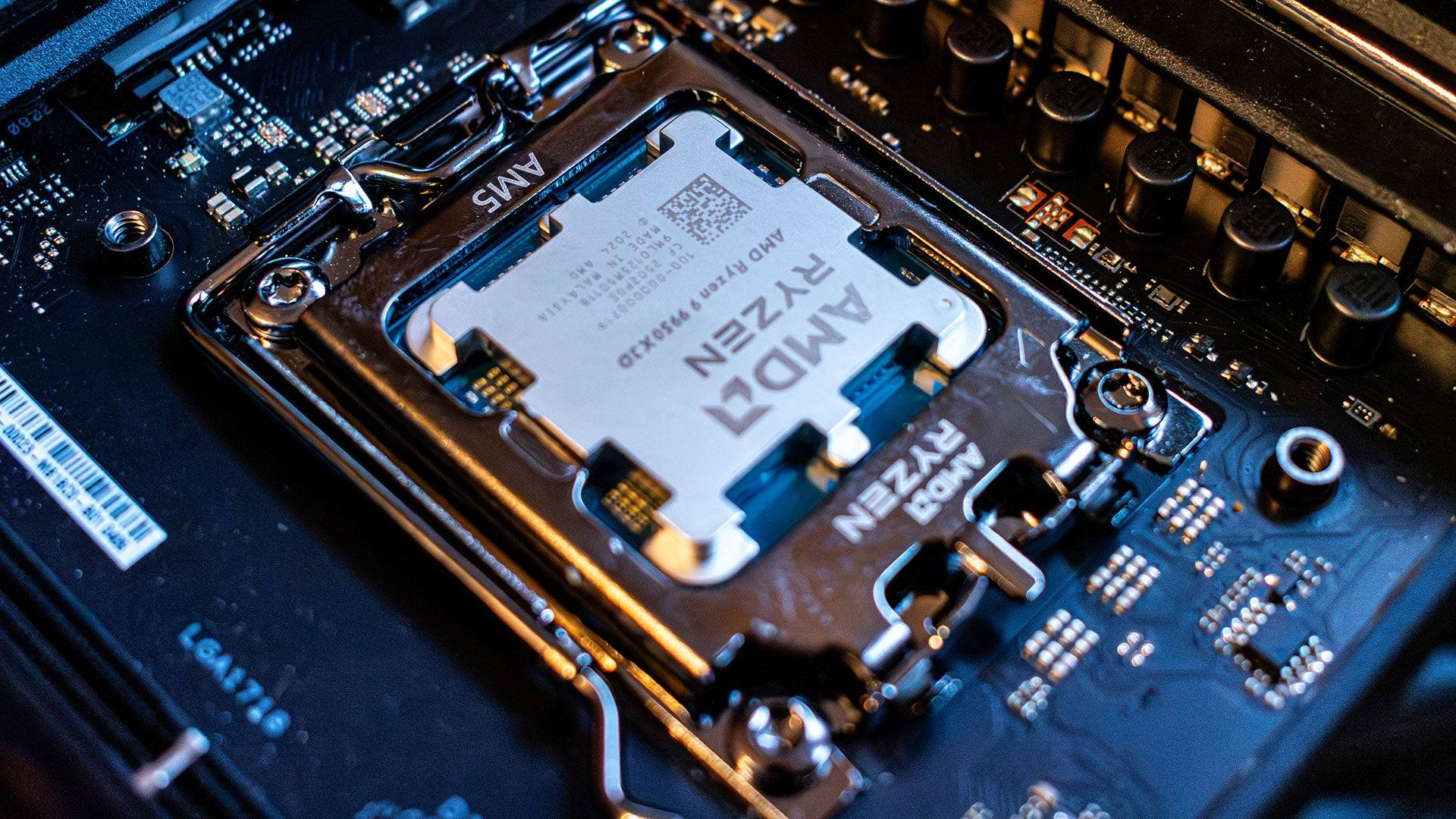
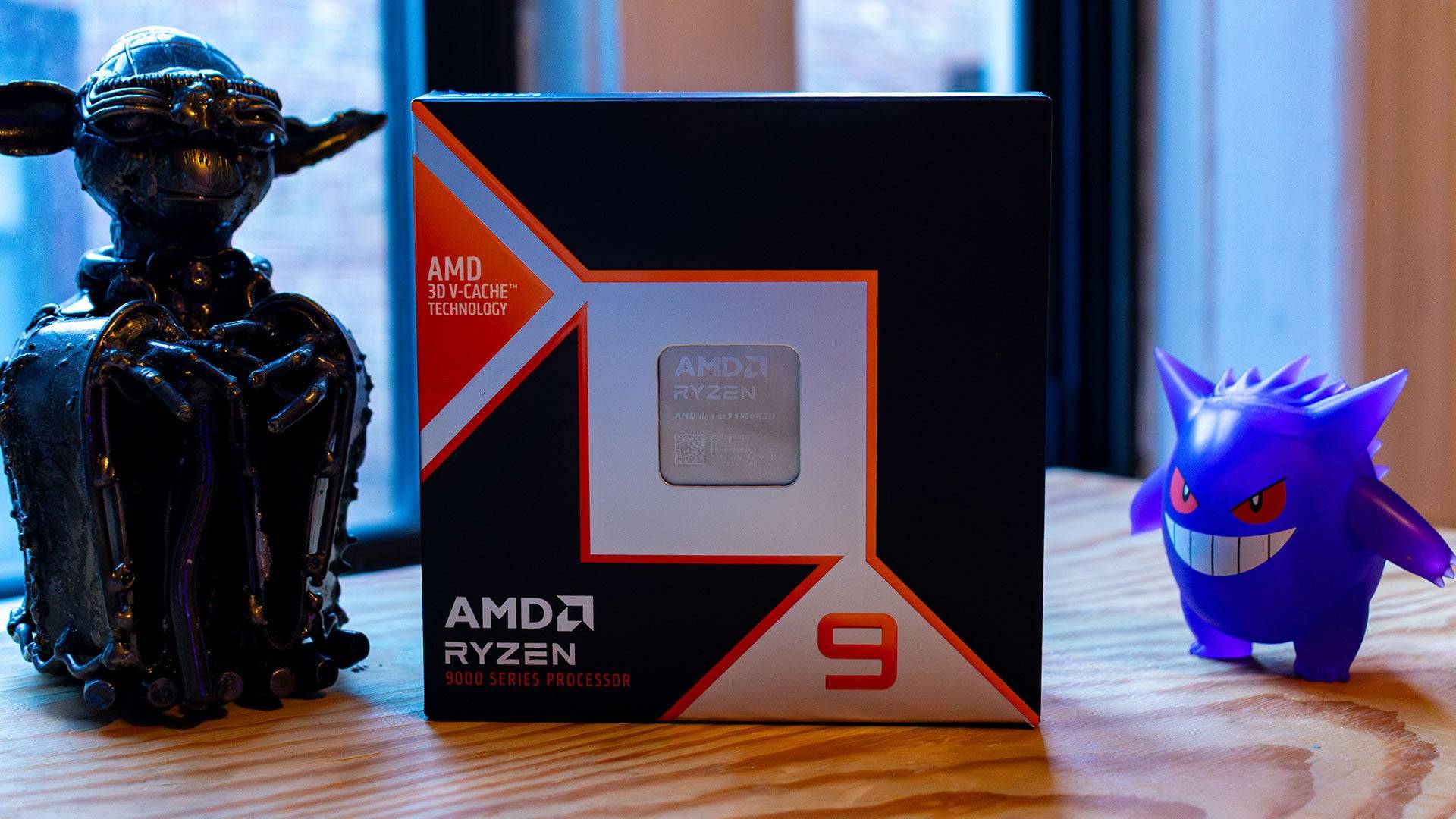 3 Images
3 Images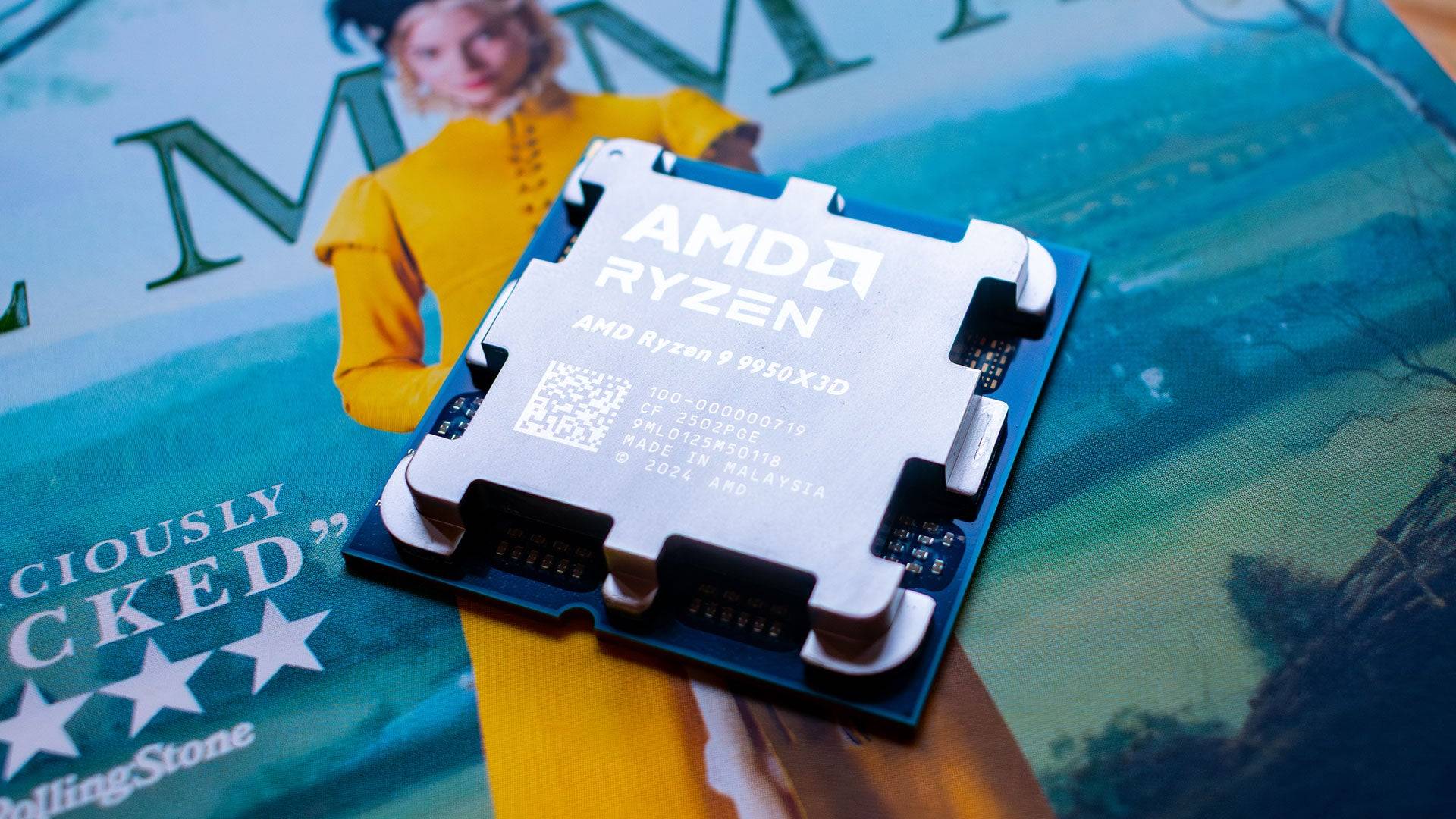
Specs and Features
The AMD Ryzen 9 9950X3D leverages the Zen 5 cores of the regular 9950X and integrates them with the new 2nd-generation 3D V-Cache, similar to the Ryzen 7 9800X3D. This combination delivers stellar multi-core performance alongside enhanced gaming capabilities thanks to an expanded cache.
Unlike its predecessor, the Ryzen 9 7950X3D, the new 3D V-Cache is positioned beneath the CPU cores instead of above them. This seemingly minor tweak significantly improves thermal performance. By placing the Core Complex Die (CCD) closer to the Integrated Heat Spreader (IHS), heat dissipation is more efficient. This allows the Ryzen 9 9950X3D to sustain higher performance levels due to AMD’s algorithms considering thermal headroom.
The strategic placement of the cache also reduces data travel distance, lowering latency. Additionally, the 9950X3D boasts a massive 144MB of combined L2 and L3 cache, matching its predecessor and outstripping non-X3D processors.
Both the Ryzen 9 9950X and 9950X3D share a 170W TDP, though the original 9950X can reach a higher potential PPT. In testing, both models peaked at 200W, but the 9950X3D maintained a cooler peak temperature of 79°C, albeit on a different cooling setup.
Fortunately, the 9950X3D is compatible with existing AM5 AMD motherboards, and AMD has committed to supporting this socket until at least 2027, ensuring future-proofing for your investment.
AMD Ryzen 9 9950X3D – Benchmarks

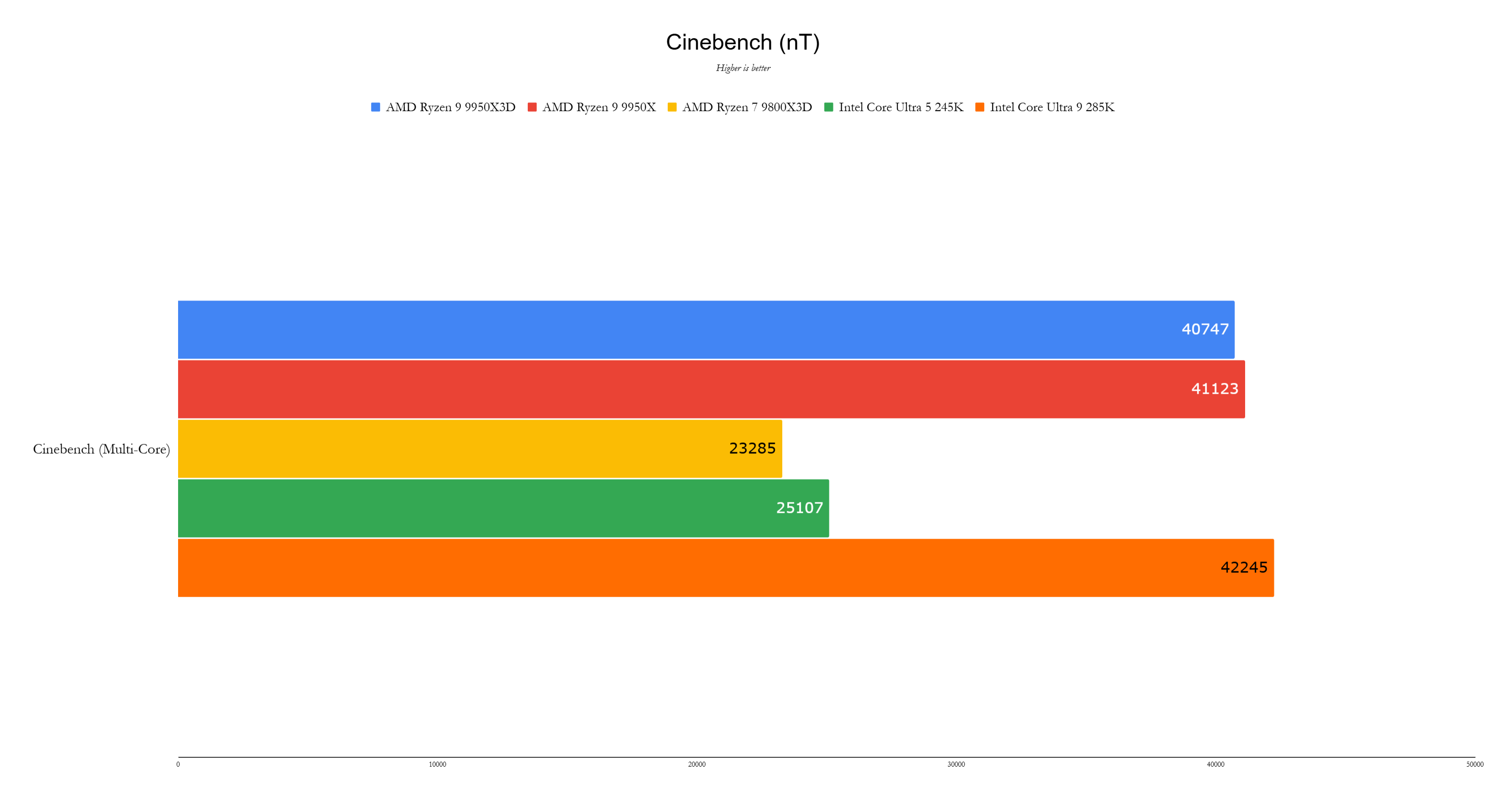 11 Images
11 Images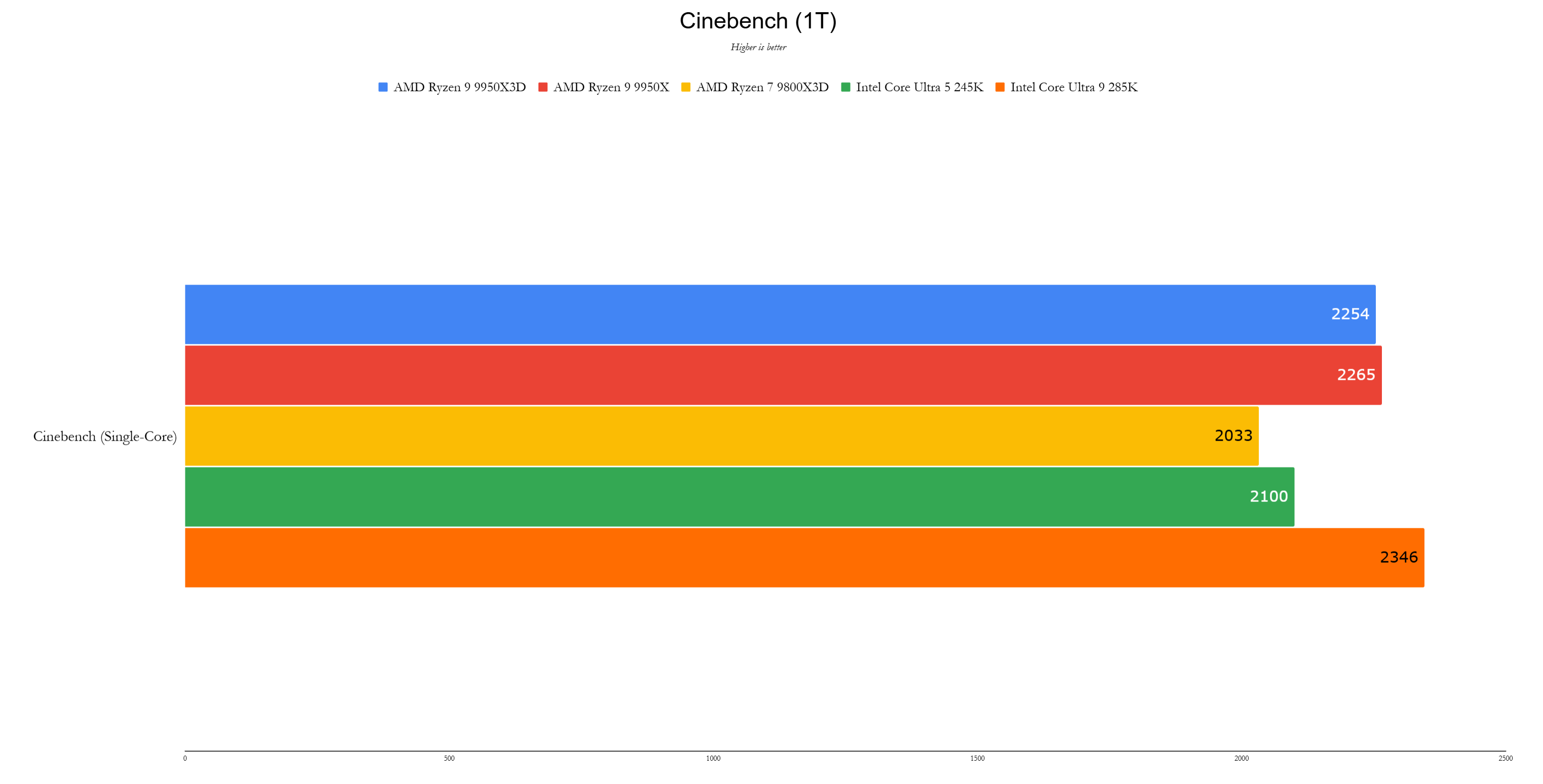
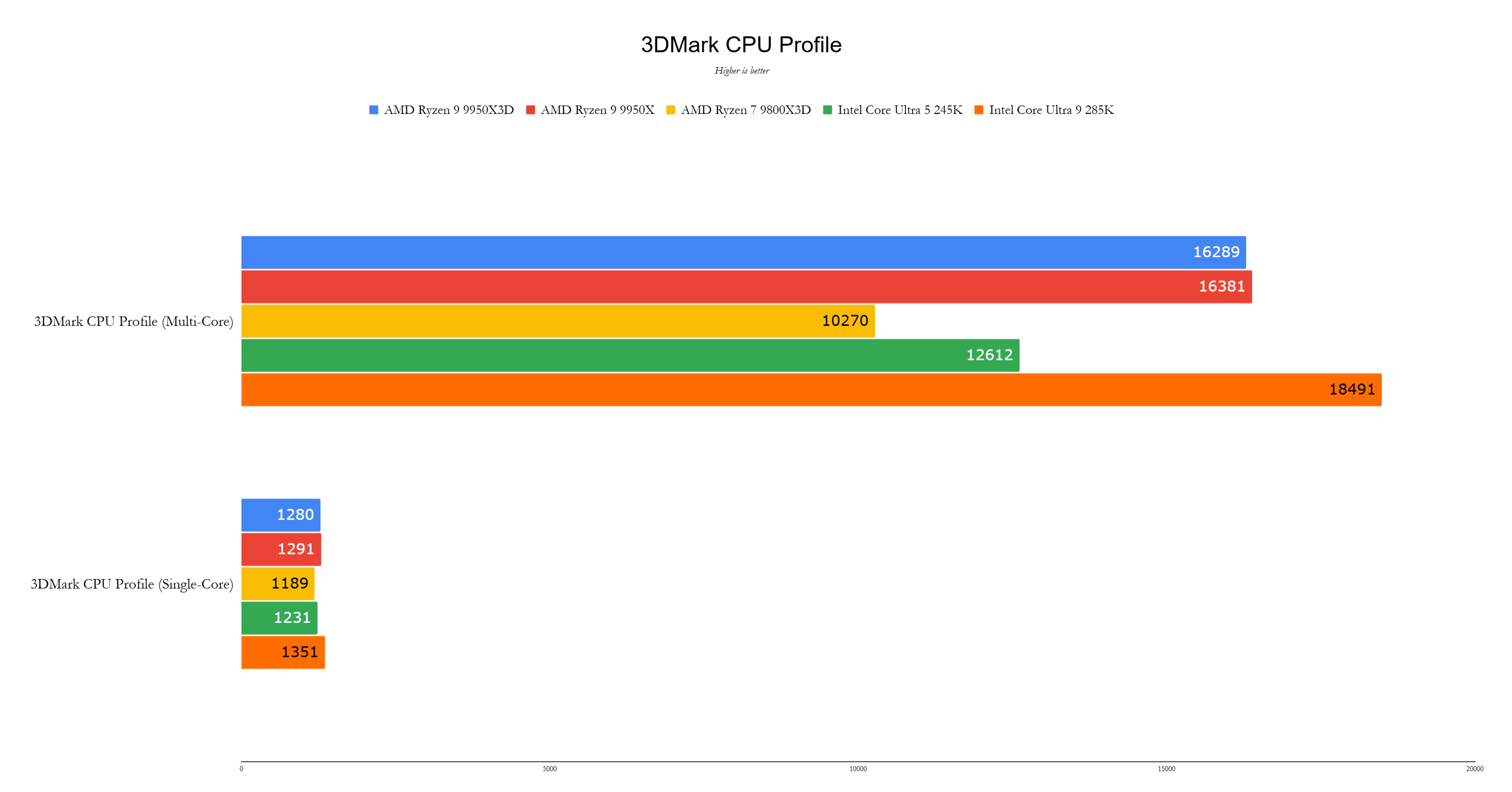
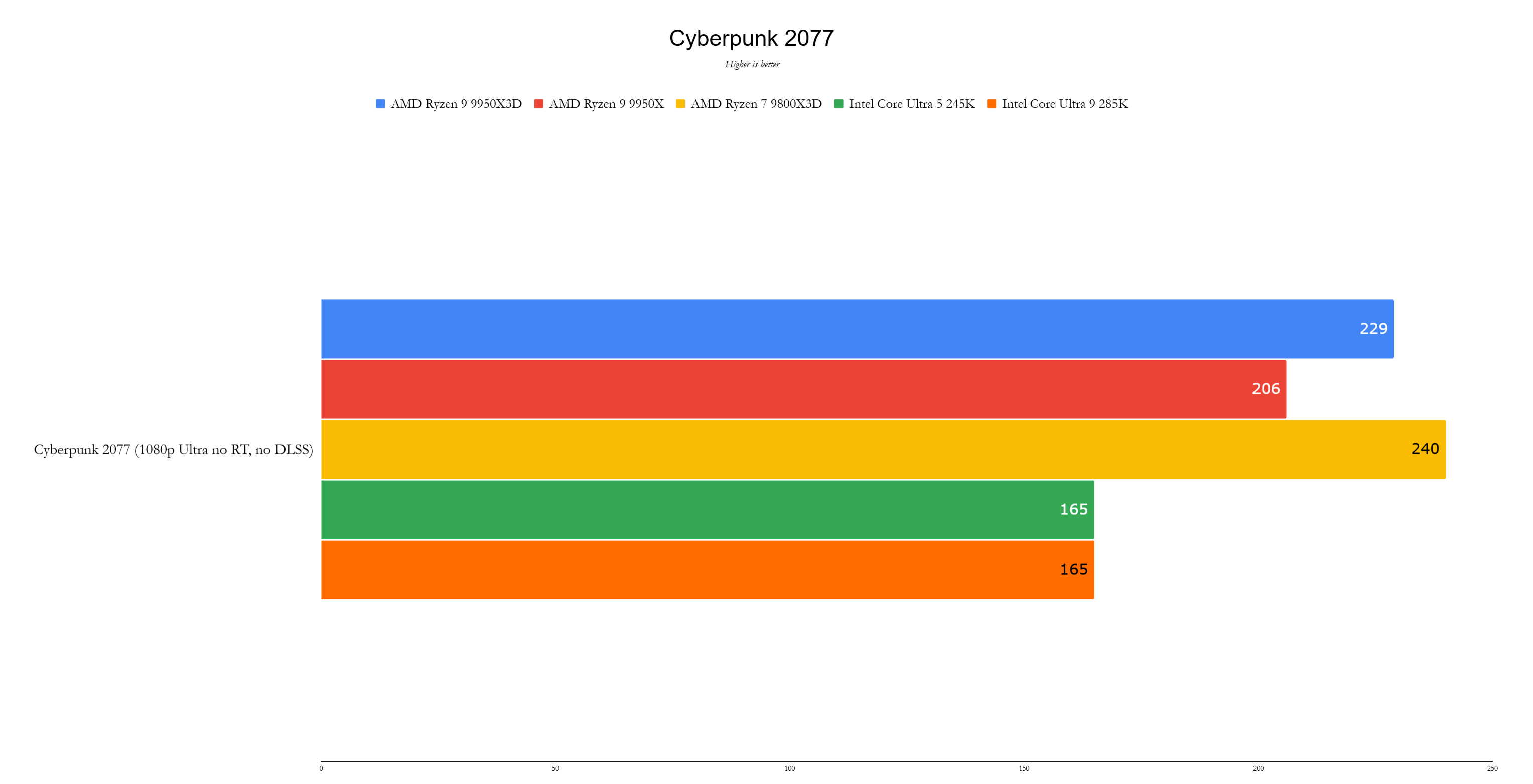
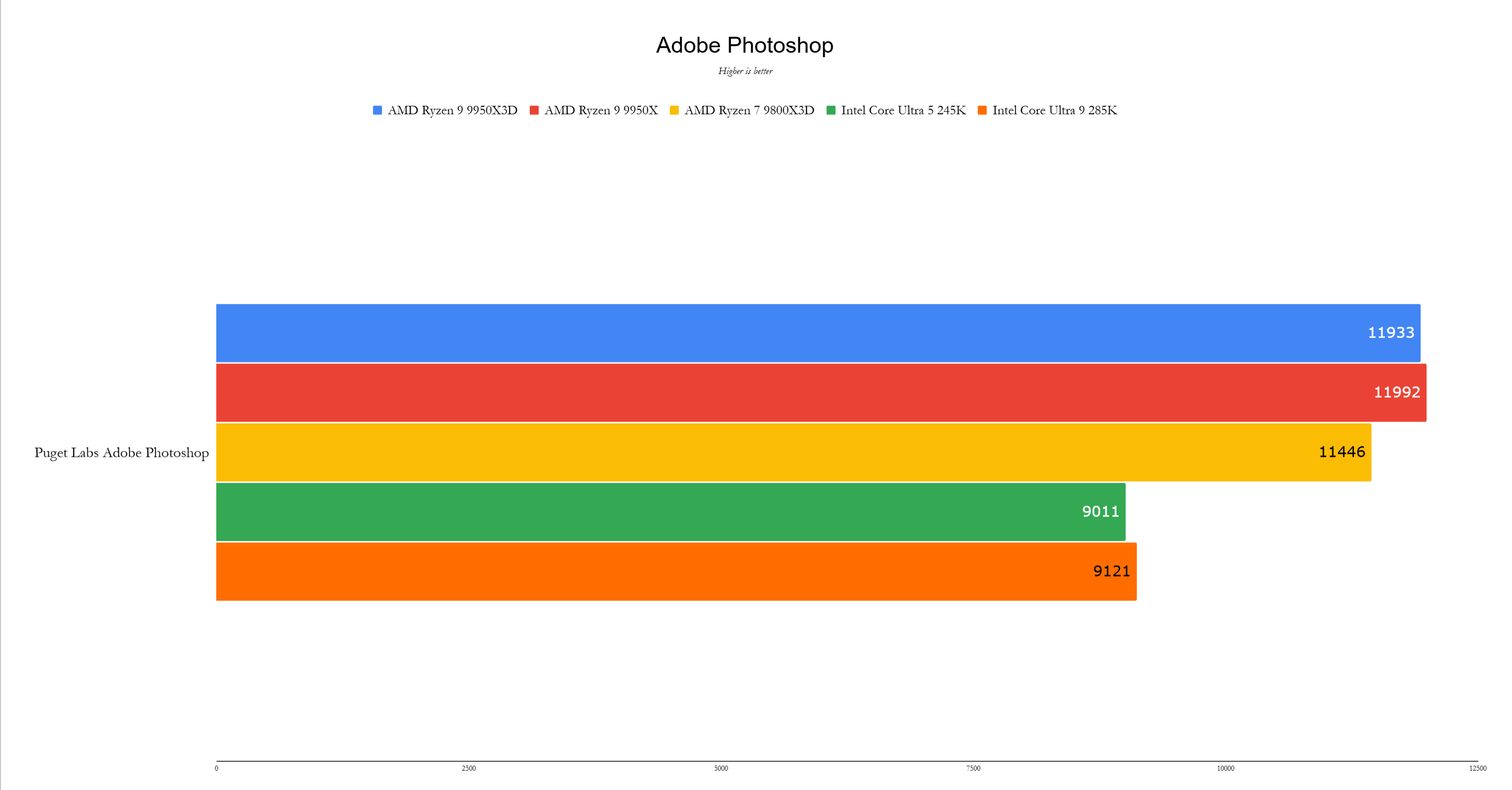
Performance
Before delving into the performance metrics, it's important to note that all CPUs were tested on identical hardware, with the exception of the Ryzen 9 9950X, which used an Asus ROG Crosshair X670E Hero motherboard and a Corsair H170i 360mm AIO cooler. Although this variation might influence results, the impact is likely minimal, especially since tests were conducted at stock settings.
AMD Test Bench:
GPU: Nvidia GeForce RTX 4090
Motherboard: Asus ROG Crosshair X670E Hero; Asus ROG Crosshair X870E Hero (9800X3D)
RAM: 32GB G.Skill Trident Z5 Neo @ 6,000MHz
SSD: 1TB PNY CS3140 Gen4x4 NVMe SSD
CPU Cooler: Asus ROG Ryujin III 360 ARGB Extreme
A hardware swap issue necessitated the use of a different cooler for the 9950X, but retesting is planned to ensure accuracy. If significant differences arise, this section will be updated.
The AMD Ryzen 9 9950X3D, with its 16 cores, 32 threads, and a staggering 144MB of cache, is a powerhouse. It excels not only in gaming but also in creative benchmarks, outpacing the Ryzen 7 9800X3D where it previously lagged.
Intel Test Bench:
GPU: Nvidia GeForce RTX 4090
Motherboard: Asus ROG Maximus Z890 Hero (200S); Asus Prime Z790-A (14th-Gen)
RAM: 32GB Corsair Vengeance DDR5 @ 6,000MHz
SSD: PNY CS3140 1TB Gen 4 x 4 NVMe SSD
CPU Cooler: Asus ROG Ryujin III 360 ARGB Extreme
Surprisingly, the 9950X3D also performs admirably in single-core workloads, scoring 2,254 points in Cinebench 1T compared to the 9800X3D's 2,033 points—a 10% improvement. In the 3DMark CPU Profile test, it achieves 1,280 points, closely competing with the Intel Core Ultra 9 285K's 1,351 points.
In multi-threaded workloads, the Ryzen 9 9950X3D shines, scoring 40,747 points in Cinebench's multi-core test. Although it slightly trails the 9950X and Intel Core Ultra 9 285K in some applications, the trade-off is well worth it for the enhanced gaming performance.
In gaming, the 9950X3D delivers 274 fps in Total War: Warhammer 3 at 1080p with Ultra settings, surpassing the 9800X3D's 254 fps and the Core Ultra 9 285K's 255 fps. However, in Cyberpunk 2077 at 1080p with the Ultra preset and ray tracing disabled, it achieves 229 fps, slightly behind the 9800X3D's 240 fps but still ahead of the Intel processor's 165 fps.
Overkill?
While the AMD Ryzen 9 9950X3D is currently the most potent gaming processor available, it's not automatically superior in all scenarios. For most users, the Ryzen 7 9800X3D, priced at a more accessible $479, offers sufficient performance.
The 9950X3D is best suited for users who not only game but also engage in creative work with applications like Photoshop and Premiere, where it shows a 15% performance boost over the 9800X3D. For a purely gaming-focused build, however, saving the extra $220 to invest in a better graphics card might be a smarter move.
-
AMD Radeon RX 9060 XT Confirmed: Details Revealed
May 23,2025 -
AMD Ryzen 7 9800X3D: Top Gaming CPU Now Back in Stock at Amazon
May 21,2025 -
AMD Radeon RX 9070 XT: Performance Unveiled
Apr 11,2025 -
AMD Zen 5 Gaming CPUs Restocked: 9950X3D, 9900X3D, 9800X3D Available Now
May 13,2025 -
Best Buy Launches Prebuilt Gaming PCs with New AMD Radeon RX 9070 and 9070 XT
Mar 25,2025 -
Best Deals on AMD Radeon RX 9070 and 9070 XT Graphics Cards
Mar 27,2025 -
The Powerful AMD Zen 5 9950X3D, 9900X3D, and 9800X3D Gaming CPUs Are Now Available
Mar 26,2025 -
Amazon Just Dropped the Price on This AMD Radeon RX 9070 XT Prebuilt Gaming PC
Mar 28,2025 -
The Best Deals Today: PS Portal, PS5 DualSense Controllers, New AMD Ryzen X3D CPUs, New iPad Air
Mar 21,2025 -
Where to Buy AMD Radeon RX 9070 and 9070 XT Prebuilt Gaming PCs for as Low as $1350
Mar 20,2025
-
1
![Roblox Forsaken Characters Tier List [UPDATED] (2025)](https://imgs.ksjha.com/uploads/18/17380116246797f3e8a8a39.jpg)
Roblox Forsaken Characters Tier List [UPDATED] (2025)
Mar 17,2025
-
2

Roblox UGC Limited Codes Unveiled for January 2025
Jan 06,2025
-
3

Stardew Valley: A Complete Guide To Enchantments & Weapon Forging
Jan 07,2025
-
4

Pokémon TCG Pocket: Troubleshooting Error 102 Resolved
Jan 08,2025
-
5

Free Fire Characters 2025: Ultimate Guide
Feb 20,2025
-
6

Blood Strike - All Working Redeem Codes January 2025
Jan 08,2025
-
7

Roblox: RIVALS Codes (January 2025)
Jan 07,2025
-
8

Blue Archive Unveils Cyber New Year March Event
Dec 19,2024
-
9

Delta Force: A Complete Guide to All Campaign Missions
Apr 09,2025
-
10

Cyber Quest: Engage in Captivating Card Battles on Android
Dec 19,2024
-
Download

A Simple Life with My Unobtrusive Sister
Casual / 392.30M
Update: Mar 27,2025
-
Download
![Corrupting the Universe [v3.0]](https://imgs.ksjha.com/uploads/66/1719514653667db61d741e9.jpg)
Corrupting the Universe [v3.0]
Casual / 486.00M
Update: Dec 17,2024
-
Download

Random fap scene
Casual / 20.10M
Update: Dec 26,2024
-
4
Ben 10 A day with Gwen
-
5
Oniga Town of the Dead
-
6
Cute Reapers in my Room Android
-
7
A Wife And Mother
-
8
Permit Deny
-
9
Utouto Suyasuya
-
10
My School Is A Harem














